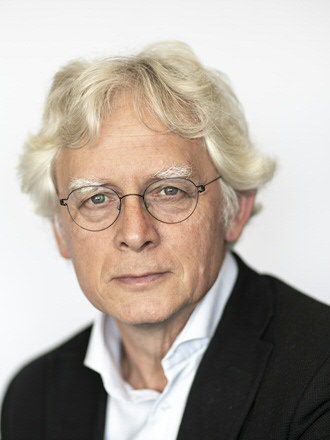Faculty of Arts organizes conference on vocations of science

On 4 and 5 March 2020, the Faculty of Arts at the University of Groningen is organizing a conference to mark the retirement of Professor Klaas van Berkel. This renowned and respected science historian and university professor is taking his leave from Groningen after a career spanning 35 years. The main theme of the conference will be ‘vocations of science’. Science historians from the Netherlands and abroad will give their opinions on the subject. In addition, the famous science historian Steven Shapin from Harvard University will give a keynote speech.
President of the Board of the University of Groningen, Jouke de Vries: ‘It is a huge honour to have a leading academic like Steven Shapin come to Groningen to praise the work of “our” Klaas van Berkel. I am looking forward to his keynote speech, in which he will question the “vocation” and the current “authority” of science.’
Plea to continue the field of research
According to the well-known sociologist Max Weber, the world had been ‘demystified’. Practical problems were not solved by magic, but by technology. In this rational world, science had a higher status than religion. For this reason, Weber thought that science should not just be a profession, but more importantly, a vocation; driven by intrinsic motivation and dedication to the truth. More than a hundred years later, his prediction appears to have come true.
There has always been an area of tension between free science and the requirements of a university, says Klaas van Berkel. ‘Science is dynamic, in a constant state of flux, just like the culture in which it exists. Historical knowledge of the development of science, and its changing position in society, is essential to academies and academics. If you work at the frontiers of knowledge, you need insight into the limitations of science. A good researcher can manage perfectly well without science history. But a university cannot take social responsibility if it is unaware of the history of its own task’, says Van Berkel.
‘All illusions’
Van Berkel studied history and philosophy at the University of Groningen and was awarded a PhD in 1983 by Utrecht University. He wrote his thesis on Isaac Beeckman and the mathematization of the perception of the world. In 1988, he was appointed as a Professor of History after the Middle Ages at the University of Groningen . In 2009-2010, he worked at Harvard University as an Erasmus guest lecturer. He is a member of the Royal Netherlands Academy of Arts and Sciences (KNAW) and has published extensively and internationally on the history of culture and science. Van Berkel was appointed to the Rudolf Agricola chair at the University of Groningen in 2009. In his capacity as a research professor, he is writing a full history of the University since its foundation in 1614. Van Berkel can also claim numerous publications on cultural history in the broader sense. This is the subject of his latest essay bundle Een en al illusies (‘All illusions’), which is due to be published by Prometheus on Thursday 5 March.
Practical matters
The conference (Dis)enchanting Disenchantment. Vocations of Science/Scholarship from Early Modern to Contemporary History will revolve around science history. It will take place on Wednesday 4 and Thursday 5 March 2020 in the Academy Building and the Van Swinderen Huys. English will be spoken throughout the conference, with the exception of Van Berkel’s own farewell lecture.
More news
-
07 January 2026
How music is helping to revive the Gronings dialect
-
16 December 2025
How AI can help people with language impairments find their speech
-
18 November 2025
What about the wife beater? How language reinforces harmful ideas
